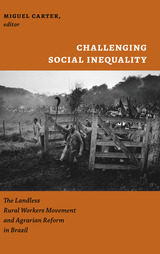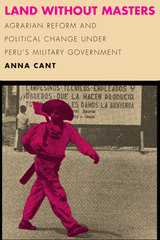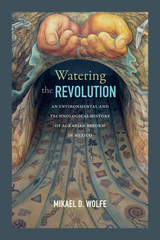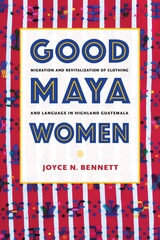
Contributors. José Batista Gonçalves Afonso, Sonia Maria P..P. Bergamasco, Sue Branford, Elena Calvo-González, Miguel Carter, Horacio Martins de Carvalho, Guilherme Costa Delgado, Bernardo Mançano Fernandes, Leonilde Sérvolo de Medeiros, George Mészáros, Luiz Antonio Norder, Gabriel Ondetti, Ivo Poletto, Marcelo Carvalho Rosa, Lygia Maria Sigaud, Emmanuel Wambergue, Wendy Wolford

In 1969, Juan Velasco Alvarado’s military government began an ambitious land reform program in Peru, transferring holdings from large estates to peasant cooperatives. Fifty years later this reform remains controversial: critics claim it unjustly expropriated land and ruined the Peruvian economy, while supporters emphasize its success in addressing rural inequality and exploitation.
Moving beyond agricultural policy to offer a fresh perspective on the agrarian reform, Land without Masters shows how ideological assumptions and state interventions surrounding the reform transformed Peru’s political culture and social fabric. Drawing on fieldwork in three different regions, Anna Cant shows how the government adapted its discourse and interventions to the local context while using the reform as a platform for nation-building. This comparative approach reveals how local actors shaped the regional impact of the agrarian reform and highlights the new forms of agency that emerged, including that of marginalized peasants who helped forge a new social, cultural, and political landscape.
Making novel use of both visual and cultural sources, this book is a fascinating look at how the agrarian reform process permanently altered the relationship between rural citizens and the national government—and how it continues to resonate in Peruvian politics today.

Serf, Seigneur, and Sovereign was first published in 1966. Minnesota Archive Editions uses digital technology to make long-unavailable books once again accessible, and are published unaltered from the original University of Minnesota Press editions.
This is a detailed history of the agrarian reforms which took place in Bohemia during the reigns of the Habsburg rulers Maria Theresa, 1740–1780, and Joseph II, 1780–1790. The enactment of the land reforms had far-reaching social, economic, and political effects, and the subject constitutes an important chapter in the history of the nation we now know as Czechoslovakia. The topic has been hardly touched in English, however, and has only recently been properly treated by the Marxist historians of post-World War II Czechoslovakia. Much of Professor Wright's account is based on documents not previously used by historians, particularly materials in the Hofkammerarchiv in Vienna.
The author provides a background by describing the development of serfdom in Bohemia over approximately two hundred years prior to the accession of Maria Theresa to the throne of Austria in 1740. In major sections of the book Professor Wright traces the causes, events, and effects of the program of agrarian reform which Maria Theresa and Joseph II carried out. He shows how the changes in the land system profoundly affected the relationships of the serf, seigneur, and sovereign, and how they paved the way for the much greater social revolution which was to come with the emancipation of 1848.
In addition to providing a wealth of factual information, the account gives a dramatic picture of the plight of the peasant, along with valid glimpses of the personalities of the rulers and their ministers. Specialists in European history, social history, or agrarian history will find the book particularly rewarding.

READERS
Browse our collection.
PUBLISHERS
See BiblioVault's publisher services.
STUDENT SERVICES
Files for college accessibility offices.
UChicago Accessibility Resources
home | accessibility | search | about | contact us
BiblioVault ® 2001 - 2025
The University of Chicago Press









